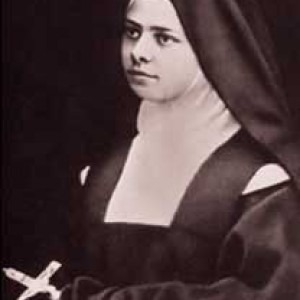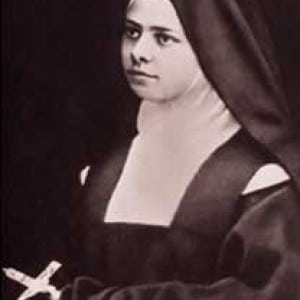Podcast: Play in new window | Download (Duration: 27:31 — 25.2MB) | Embed
Subscribe: Apple Podcasts | Spotify | Amazon Music | Android | Pandora | iHeartRadio | JioSaavn | Podchaser | Gaana | Podcast Index | Email | TuneIn | Deezer | Anghami | RSS | More

Day 5 – The Last Retreat by St. Elizabeth of the Trinity- Beginning to Pray with Dr. Anthony Lilles
Dr. Anthony Lilles and Kris McGregor discuss St. Elizabeth’s eschatological vision rooted in the Book of Revelation, where she contemplates the heavenly liturgy and the hidden spiritual reality taking place even now around the throne of the Lamb. He draws parallels between Elizabeth’s vision and the Easter Vigil liturgy; how liturgical images—white robes, palm branches, and candles—are not merely symbolic, but signs of a deeper spiritual truth that opens to us through contemplative prayer. Despite lacking formal biblical scholarship, Elizabeth saw clearly that heaven touches earth, and through the Church’s teaching and the gift of faith, we can participate in this mystery now.
Her insights take on even more depth as she writes while enduring excruciating suffering from Addison’s disease, approaching death with peace and love for Christ. Dr. Lilles explains how her inner conformity to Christ crucified—offering her pain as a participation in his redemptive sacrifice—reveals a spiritual maturity grounded in love, not in emotional or physical comfort. Her writings invite others into that same surrender, where trust in God transforms suffering into rest.
Discerning Hearts Reflection Questions
- How does contemplating the heavenly liturgy described in Revelation influence your understanding of what truly matters in daily life?
- In what ways can you become more aware of the hidden spiritual drama unfolding around the throne of the Lamb?
- Do you view suffering as something to be avoided or as a means of union with Christ?
- How can you foster peace in the midst of external and internal trials through faith?
- What distractions in your life might be keeping you from deeper contemplation or openness to God’s will?
- How can you create a more prayerful atmosphere in your home, especially during times of illness or difficulty?
- Are you willing to offer your daily struggles as a spiritual sacrifice in union with Christ’s own offering?
- What does it mean for you personally to be conformed to the image of the one “crucified by love”?
- How does participating in the liturgy help you encounter the same mystery that Elizabeth of the Trinity describes?
- In what ways is God inviting you to trust more deeply in His love, even when you do not understand your circumstances?

From “Last Retreat Day 5” found in The Complete Works vol 1:
12. “I saw a great multitude which no man could number. . . . These are they who have come out of the great tribulation and have washed their robes and made them white in the Blood of the Lamb. Therefore they are before the throne of God, and serve Him day and night in His temple, and He who sits upon the throne will dwell with them. They shall neither hunger nor thirst anymore, neither shall the sun strike them nor any heat. For the Lamb will be their shepherd, and He will lead them to the fountains of the waters of life, and God will wipe away every tear from their eyes. . . .”
All these elect who have palms in their hands, 69 and who are wholly bathed in the great light 70 of God, have had first to pass through the “great tribulation,” to know this sorrow “immense as the sea,” 71 of which the psalmist sang. Before contemplating “with uncovered face the glory of the Lord,” 72 they have shared in the annihilation of His Christ; before being “transformed from brightness to brightness in the image of the divine Being,” 73 they have been conformed to the image of the Word Incarnate, the One crucified by love.
We would like to thank Miriam Gutierrez for providing “the voice” of St. Elizabeth for this series
For other episodes in the series visit the Discerning Hearts page for Dr. Anthony Lilles
Anthony Lilles, S.T.D., has served the Church and assisted in the formation of clergy and seminarians since 1994. Before coming to St. Patrick’s, he served at seminaries and houses of formation in the Archdiocese of Denver and the Archdiocese of Los Angeles. The son of a California farmer, married with young adult children, holds a B.A. in theology from the Franciscan University of Steubenville with both the ecclesiastical licentiate and doctorate in spiritual theology from the Pontifical University of Saint Thomas Aquinas in Rome (the Angelicum). An expert in the writings of St. Elizabeth of the Trinity and the Carmelite Doctors of the Church, he co-founded the Avila Institute for Spiritual Formation and the High Calling Program for priestly vocations. He also founded the John Paul II Center for Contemplative Culture, which hosts symposiums, retreats, and conferences. In addition to his publications, he blogs at www.beginningtopray.com .





